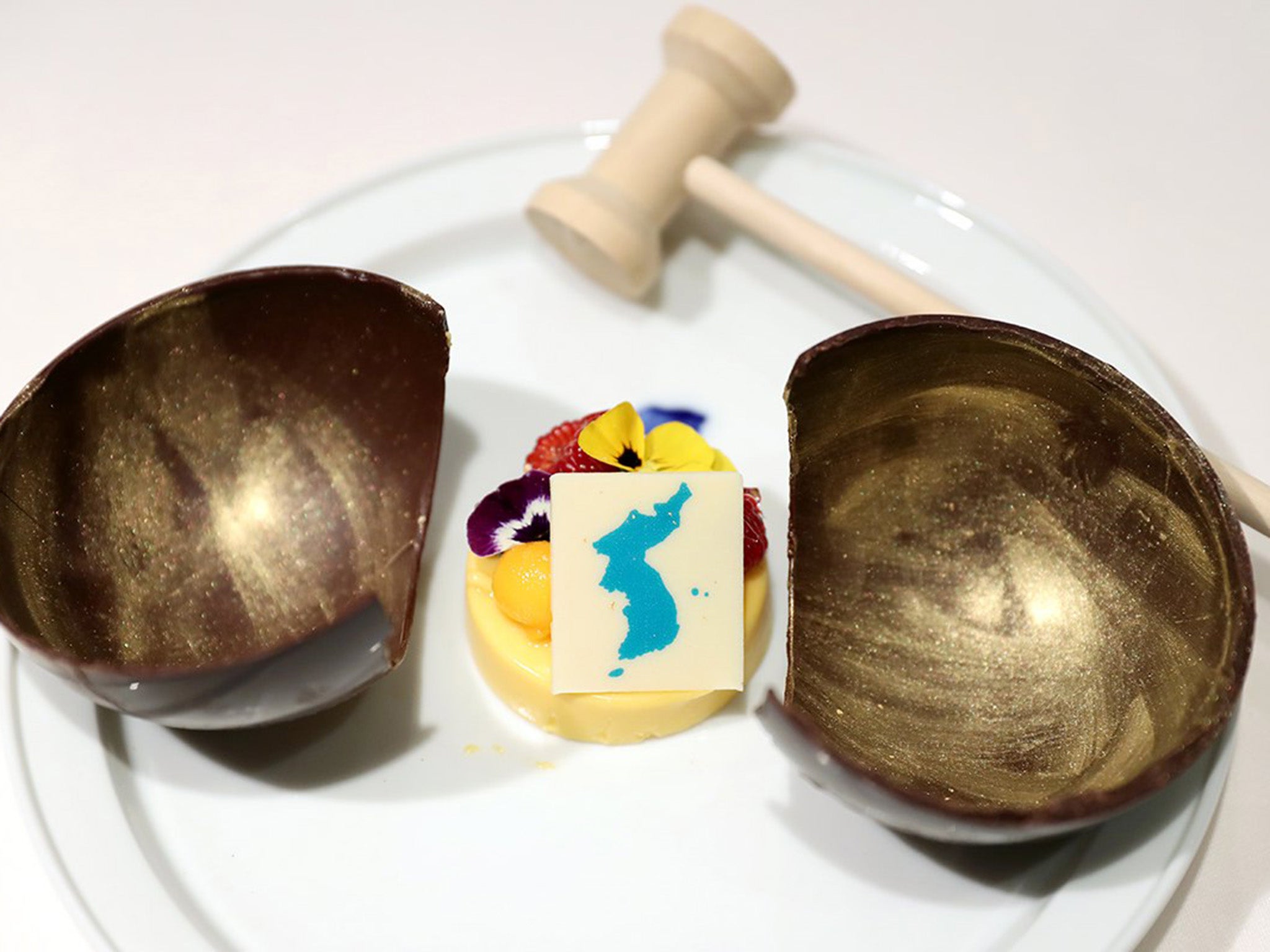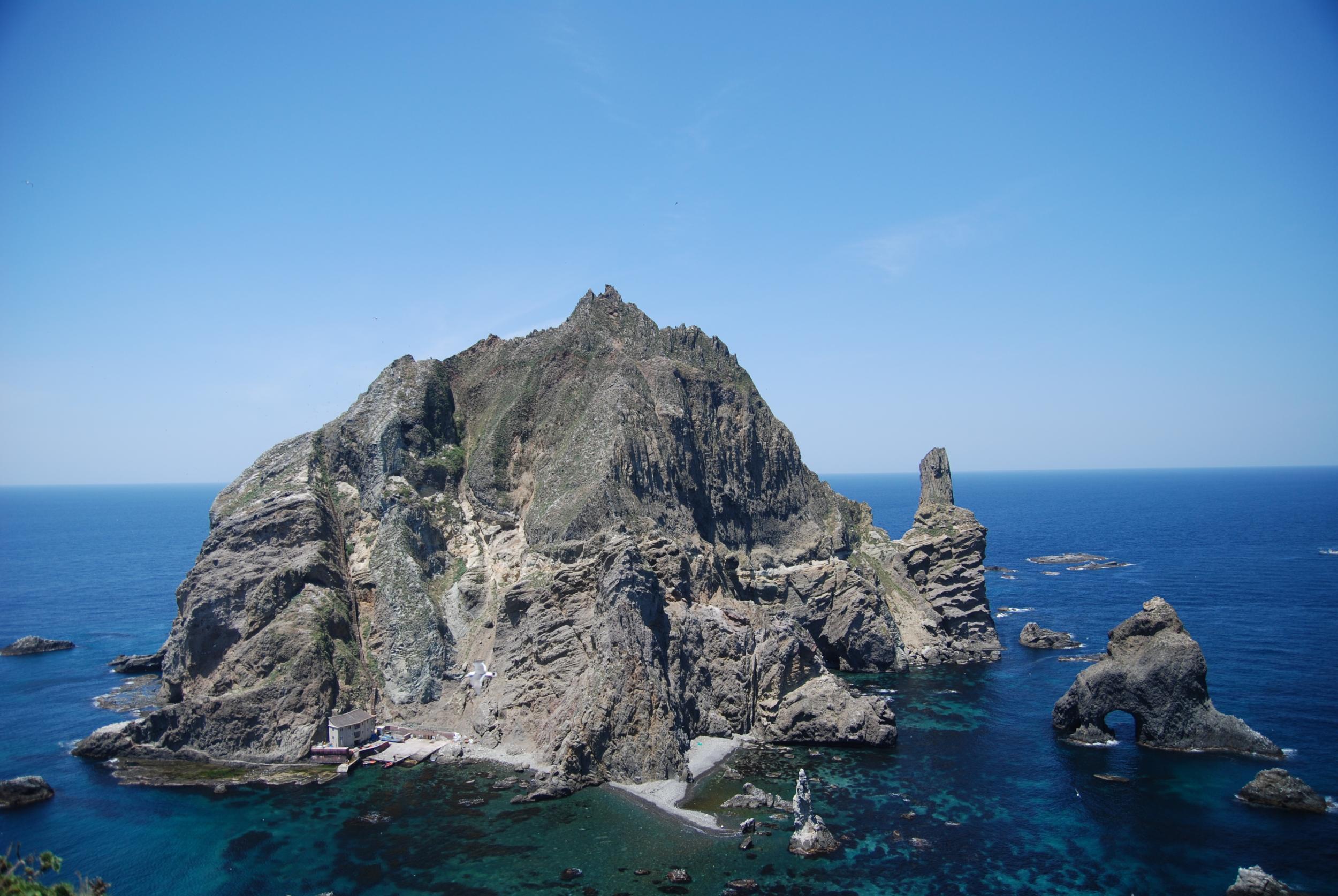Japan makes formal complaint over mango dessert South Korea is serving Kim Jong-un
Disputed islands appear on controversial dish planned for North-South summit in border village of Panmunjom

Your support helps us to tell the story
From reproductive rights to climate change to Big Tech, The Independent is on the ground when the story is developing. Whether it's investigating the financials of Elon Musk's pro-Trump PAC or producing our latest documentary, 'The A Word', which shines a light on the American women fighting for reproductive rights, we know how important it is to parse out the facts from the messaging.
At such a critical moment in US history, we need reporters on the ground. Your donation allows us to keep sending journalists to speak to both sides of the story.
The Independent is trusted by Americans across the entire political spectrum. And unlike many other quality news outlets, we choose not to lock Americans out of our reporting and analysis with paywalls. We believe quality journalism should be available to everyone, paid for by those who can afford it.
Your support makes all the difference.Japan has lodged a formal complaint about a tropical mango dessert South Korea is planning to serve Kim Jong-un’s delegation at a North-South summit dinner on Friday.
The mousse, reportedly titled “Spring of the People”, features a map of the Korean peninsula, including two islands, the sovereignty of which is disputed by Japan.
“It is extremely regrettable,” a Japanese Foreign Ministry spokeswoman said on Wednesday, adding that Japan had lodged a complaint.
“We have asked that the dessert not be served.”
The islands, known as Takeshima (island of bamboo) by Japan, and Dokdo (solitary island), by Koreans, are part of a rocky outcrop about halfway between the two countries in the Sea of Japan, which Seoul refers to as the East Sea.
The islands are populated by diverse sea and land animals, and in recent years Korean people have taken up residency there.
Since the first resident, Korean man Choi Jong-duk moved there in 1965, several more people have since become resident on the islands.
According to a Korean website dedicated to the islands, as of 2017 there were two civilian residents, two government officials, six lighthouse managers, and 40 members of the coast guard. All of the construction has been carried out by South Korea, and includes mobile phone towers built by South Korea’s two main telecommunications companies.

Both South Korea and Japan’s claims to the islands are based on mentions of the islands in historical texts.
Japan also complained to South Korea about fans waving a flag with a similar design at a friendly women’s ice hockey match at the Winter Paralympics between the combined North and South Korean team and Sweden in March.
The new dispute comes as Mr Kim and South Korean leader Moon Jae-in prepare to meet to discuss Pyongyang’s nuclear weapons programme on Friday.
Relations between the two Koreas and Japan have long been strained by territorial disputes and lingering resentment over Japanese colonisation of the Korean peninsula in the first half of last century.
Japan in the past has also protested the erection of statues commemorating Korean women and girls forced to work in Japanese military brothels during the Second World War.
Seoul says Tokyo is yet to deliver a heartfelt apology for its wartime actions.
But Mr Moon and Japanese prime minister Shinzo Abe have vowed to present a united front and exert pressure on North Korea to abandon its nuclear and missile programmes, which it pursues in defiance of UN Security Council resolutions.
The North-South summit at the border truce village of Panmunjom is set to be followed by a meeting between Mr Kim and US president Donald Trump in May or June.
Reuters contributed to this report
Join our commenting forum
Join thought-provoking conversations, follow other Independent readers and see their replies
Comments